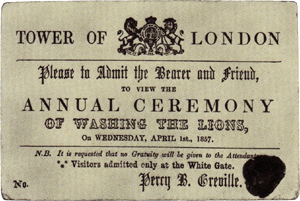April Fools' Day
April Fools' Day
April Fools' Day, also known as All Fools' Day, is an annual celebration observed on April 1st. The day is marked by the commission of hoaxes and other practical jokes of varying sophistication on friends, family members, colleagues, and neighbors, or sending them on fool's errands, the aim of which is to embarrass the gullible. The jokes and their victims are called "April fools". People playing April Fool jokes often expose their prank by shouting "April fool(s)" at the unfortunate victim(s). Some newspapers, magazines, and other published media report fake stories, which are usually explained the next day or below the news section in small letters.
History[edit | edit source]
The origins of April Fools' Day are uncertain. Some historians speculate that April Fools' Day dates back to 1582, when France switched from the Julian calendar to the Gregorian calendar, as called for by the Council of Trent in 1563. In the Julian Calendar, as in the Hindu calendar, the new year began with the spring equinox around April 1. People who were slow to get the news or failed to recognize that the start of the new year had moved to January 1 and continued to celebrate it during the last week of March through April 1 became the butt of jokes and hoaxes.
These pranks included having paper fish placed on their backs and being referred to as "poisson d’avril" (April fish), said to symbolize a young, easily caught fish and a gullible person.
Traditions[edit | edit source]
April Fools' Day is widely recognized and celebrated in various countries as a day when people play practical jokes and hoaxes on each other. The day is not a public holiday in any country except for Odessa in Ukraine, where the first of April is an official city holiday.
In Italy, France, Belgium, and French-speaking areas of Switzerland and Canada, the April 1 tradition is often known as "April fish" (poisson d'avril in French, pesce d'aprile in Italian, and aprilvis in Dutch). This includes attempting to attach a paper fish to the victim's back without being noticed.
In the United Kingdom, an April Fool joke is revealed by shouting "April fool!" at the recipient, who becomes the "April fool". A study in the 1950s, by folklorists Iona and Peter Opie, found that in the UK and in countries whose traditions derived from the UK, the joking ceased at midday. A person playing a joke after midday is the "April fool" themselves.
Notable Pranks[edit | edit source]
Throughout history, there have been many notable pranks that have been played on April Fools' Day. Some of these include:
- The Swiss Spaghetti Harvest (1957): The BBC broadcast a report on the Swiss spaghetti harvest enjoying a bumper year thanks to mild weather and the elimination of the spaghetti weevil. The report showed footage of Swiss peasants pulling strands of spaghetti down from trees.
- Taco Liberty Bell (1996): The fast-food chain Taco Bell took out a full-page ad in six major American newspapers announcing that it had purchased the Liberty Bell to "reduce the country's debt" and renamed it the "Taco Liberty Bell".
- Google's Pranks: Google has become famous for its annual April Fools' Day pranks, which have included the launch of "Google Nose" (a search engine for smells) and "Google Gulp" (a fictitious drink that would optimize one's use of Google).
Also see[edit | edit source]
Search WikiMD
Ad.Tired of being Overweight? Try W8MD's physician weight loss program.
Semaglutide (Ozempic / Wegovy and Tirzepatide (Mounjaro / Zepbound) available.
Advertise on WikiMD
|
WikiMD's Wellness Encyclopedia |
| Let Food Be Thy Medicine Medicine Thy Food - Hippocrates |
Translate this page: - East Asian
中文,
日本,
한국어,
South Asian
हिन्दी,
தமிழ்,
తెలుగు,
Urdu,
ಕನ್ನಡ,
Southeast Asian
Indonesian,
Vietnamese,
Thai,
မြန်မာဘာသာ,
বাংলা
European
español,
Deutsch,
français,
Greek,
português do Brasil,
polski,
română,
русский,
Nederlands,
norsk,
svenska,
suomi,
Italian
Middle Eastern & African
عربى,
Turkish,
Persian,
Hebrew,
Afrikaans,
isiZulu,
Kiswahili,
Other
Bulgarian,
Hungarian,
Czech,
Swedish,
മലയാളം,
मराठी,
ਪੰਜਾਬੀ,
ગુજરાતી,
Portuguese,
Ukrainian
Medical Disclaimer: WikiMD is not a substitute for professional medical advice. The information on WikiMD is provided as an information resource only, may be incorrect, outdated or misleading, and is not to be used or relied on for any diagnostic or treatment purposes. Please consult your health care provider before making any healthcare decisions or for guidance about a specific medical condition. WikiMD expressly disclaims responsibility, and shall have no liability, for any damages, loss, injury, or liability whatsoever suffered as a result of your reliance on the information contained in this site. By visiting this site you agree to the foregoing terms and conditions, which may from time to time be changed or supplemented by WikiMD. If you do not agree to the foregoing terms and conditions, you should not enter or use this site. See full disclaimer.
Credits:Most images are courtesy of Wikimedia commons, and templates Wikipedia, licensed under CC BY SA or similar.
Contributors: Prab R. Tumpati, MD




